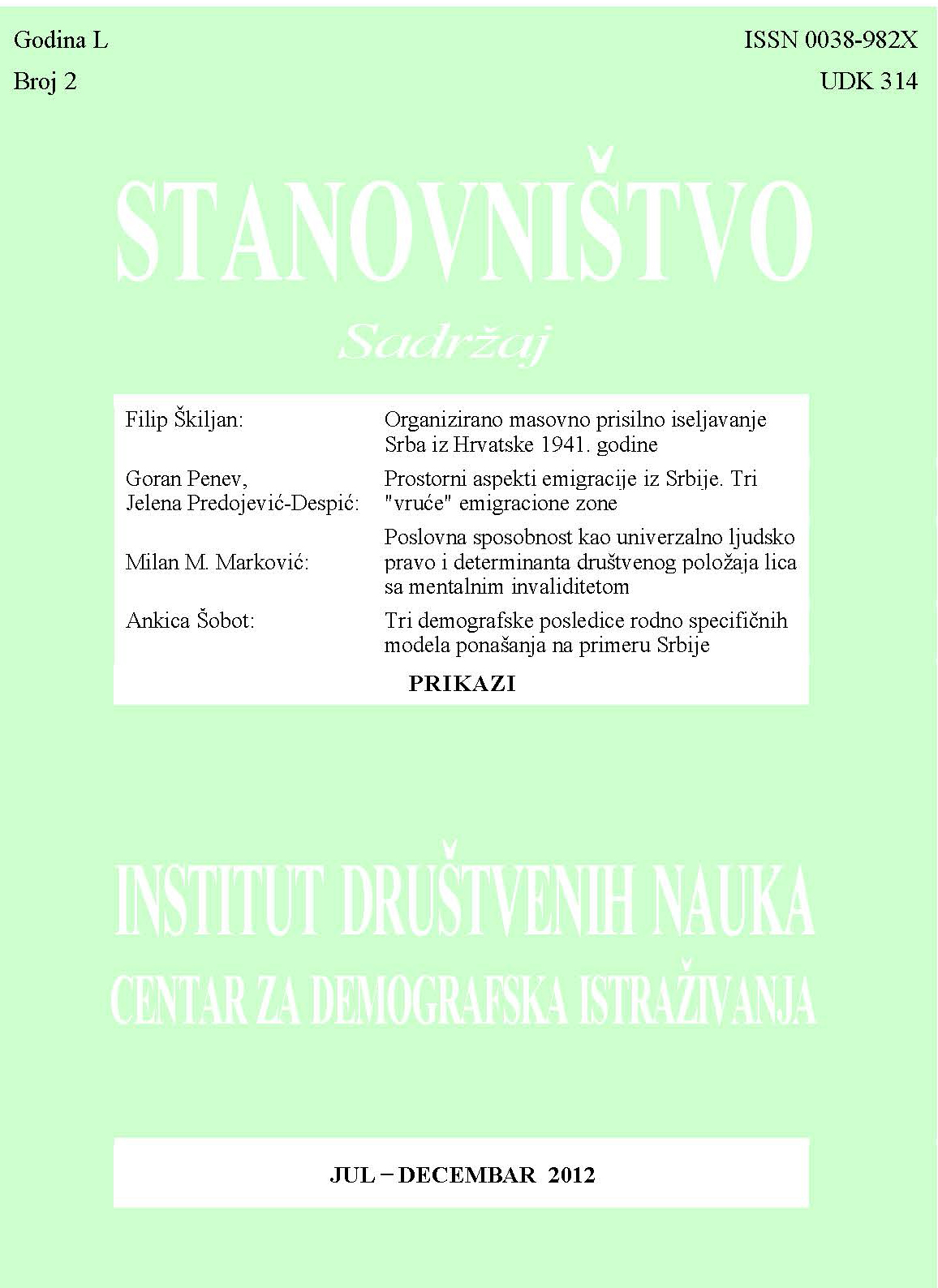Poslovna sposobnost kao univerzalno ljudsko pravo i determinanta društvenog položaja lica sa mentalnim invaliditetom
Legal Capacity as a Universal Human Right and a Determinant of Social Status of People with Mental Disability
Author(s): Milan M. MarkovićSubject(s): International Law, Human Rights and Humanitarian Law, Sociology, Health and medicine and law
Published by: Институт друштвених наука
Keywords: mental disability; legal capacity; paradigm shift; human rights; Convention on the rights of persons with disabilities
Summary/Abstract: Adoption of the UN Convention on the Right of Persons with Disabilities (2006) brought about a core shift to how the international community and human rights law see and treat human disability in general. This paradigm shift materilizes itself in a number of provisions ranging from those which catalogue the proclaimed human rights as they are in the context of special implementation and protection of people with disabilities, to those that introduce a level of specificity in light of their holders' particular needs. But the strongest presence of the shift to this regard can be found in the Article 12 CRPD that sheds new light on the concept of (legal) capacity of people with (mental) disabilites. According to this norm and put quite simply – there should be no difference in observing and treating capacity of a person with disabilities to that of any other person. This is not only the matter of prohibiting discrimination on grounds of mental impairments, but furthermore preventing the system from establishing a classification in which a person with psychosocial or intellectual impairment would be a second-rate citizen, an object of law or a victim of legal, social and family abuse, someone who is a burden to his entire environment, someone who does not have a say in any case concerning his own life and wellbeing. Legal capacity should not be a goal to be fighting for, but a universal human right. Of course and unfortunatelly, such a shift is purely a formal one, when not causing due reform withitn the national systems and without proper implementation in the member states. What is thought urgently needed and directly required by the given provision is removing the system features that allow deprivation of legal capacity on the bases of mental impairments and introducing a humane and human rights oriented model in which the decision making of these people would be autonomous and supported, and with only very restricted exceptions, done by them and not on their behalf. This novelty is what some authors call a clash between the systems of capacity and those of incapacity, i.e. the matter of replacing an environment where incapacity is presumed by an environment where capacity is presumed, supported and ensured to the highest attainable degree, and the question of seeing the legal capacity as the main social determinant for any individual.Therefore, the present article introduces the ongoing discussion about the values that this particular international legal norm has embodied and advocates in a way the urgency for change and reform in order to abolish the outrageously negative and detrimental practice in which people with mental impairments do not deserve to be social, economic, political or emotional beings, and are totally deprived of their right as living humans to decide in almost any aspects of the human life. As an illustration of certain negative tendencies existing in the old and current systems of incapacity, some data collected within the Serbian judicial structure has been employed.
Journal: Stanovništvo
- Issue Year: 50/2012
- Issue No: 2
- Page Range: 65-83
- Page Count: 18
- Language: Serbian

